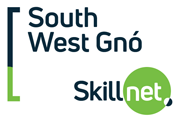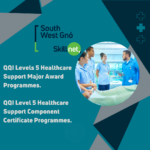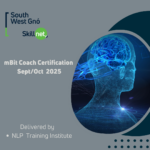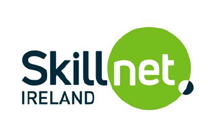QQI Level 6 Project Management Programme – Job Seeker Support Programme
3.2 Duration
The QQI Project Management Programme is delivered over six days.
3.3 Programme Aim
The aim of the programme is to provide the critical skills, knowledge and attitudes to successfully and consistently deliver projects on time, on budget and to a specified standard in accordance with QQI requirements at level 6 on the National Framework of Qualifications.
3.4 Objectives
At the end of this course participants will be able to:
- Understand the fundamental project management concepts which define best practice in project management
- Recognise and work within the multi-disciplinary framework which surrounds projects, paying particular attention to the triple constraints of time, cost and scope
- List and define the five main processes through which a project passes from its initiation to its closure
- Deploy the key tools and techniques associated with project management
- Monitor and evaluate projects.
3.5 Units
- Unit 1 Project Management Fundamentals
- Unit 2 Project Management Framework
- Unit 3 Project Management Processes
- Unit 4 Project Management Tools & Techniques
- Unit 5 Project Management Review & Presentations
3.6 Day Schedule
The training programme will be divided into the following sessions each day:
Day 1: UNIT 1 Project Management Fundamentals
- Distinguish between projects, programmes and portfolios
- Identify Primary Influencing Factors : Internal, External and Triple Constraints
- Explain the significance of the project charter
- Define the range of potential project stakeholders and their places in the project management process
- Describe different organisational structures and the impact each can have on the job of the PM
- Explain project life cycle
Day 2: UNIT 2 Project Management Framework
- Define the ten knowledge areas as presented by the globally recognised US based Project Management Institute
- Outline the five processes common to all projects:
Day 3: UNIT 3 Project Management Processes
- Process 1 : Project Initiation and the critical role of the project charter
- Process 2 : Planning;
Examining the role and standard tools & techniques associated with subsidiary project management plans relating to – Scope, Time, Cost, HR. This topic will be continued on Day 4
Day 4: UNIT 3 Project Management Processes Continued
- Continued from Day 3 : Continuing the Planning Process;
Examining the role and standard tools & techniques associated with other subsidiary project management plans relating to – Communications, Risk, Quality, Procurement and Stakeholder
- Process 3 : Executing
Executing the project plan paying particular attention to the tools and techniques governing quality assurance, HR management, communications management and stakeholder management - Process 4 : Monitoring and Controlling
During the project life cycle, project activities must be thoroughly monitored and controlled measuring performance against the plan and controlling deviations from the plan. The standard tools and techniques deployed during this process including status reports, earned value analysis will be examined.
- Process 5 : Closing the project
Once all the project requirements are achieved i.e. the project deliveries are in line with the acceptance criteria defined by the client, the project will be duly accepted by the project sponsor. The variety of activities which must take place during the closeout phase will be examined here including the documenting of lessons learned.
- Bottom up vs Top Down estimates
- Constructing Risk Matrices
- Constructing RACI charts (Responsible, Accountable, Consulted, Informed)
- PERT, Gantt charts, CPM (Critical Path Method)
- Performance Indicators : CPI, SPI, SV and CV
- Designing WBS (Work Breakdown Structures)
Day 6: UNIT 5 Material Review and Participant Presentations
Dates: 22nd, 23rd, 28th & 30th November, 6th & 7th December, 2016
Trainer: Sharon Fleming – MCX Training & Development
Bookings
Bookings are closed for this event.






